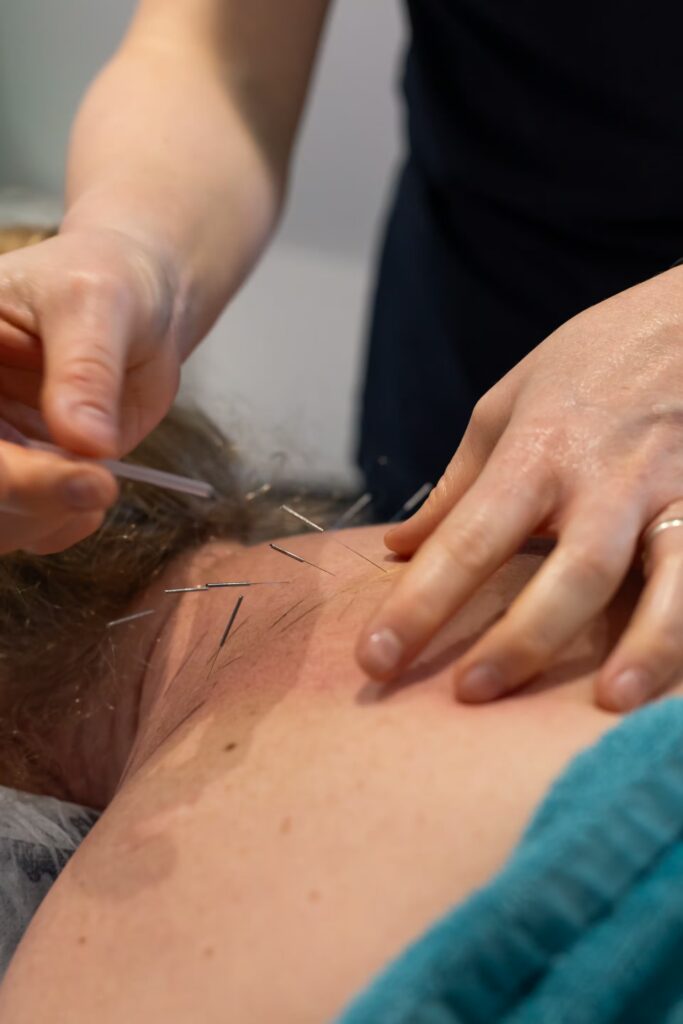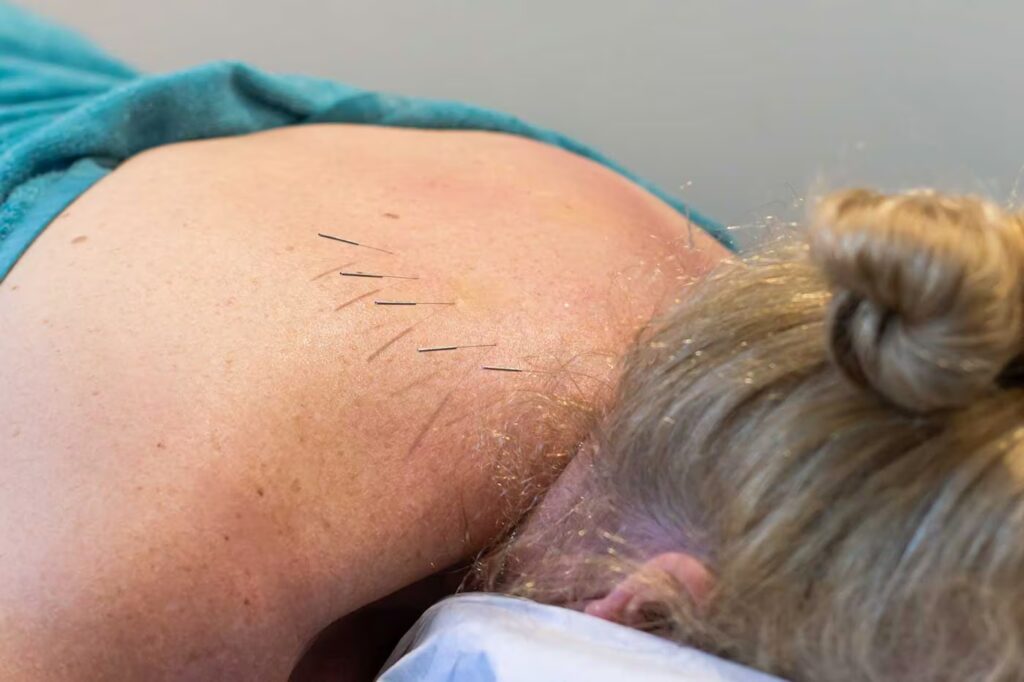About Medical Acupuncture
Acupuncture consists of inserting very fine needles into certain sites in the body. It has origins in the Far East over 3000 years ago and has been used increasingly in Western medicine since the 1970s with a growing body of clinical research and scientific evidence to support its use.
Medical acupuncture is one of the many skills employed by our practitioners at The Courtyard Clinic, and can be used within an Osteopathic treatment as part of an integrated approach to treat pain, inflammation and other related conditions.
What are the benefits?
There is an increasing number of research publications both in the UK and worldwide highlighting the effectiveness of medical acupuncture when compared to other treatment modalities, such as opioids and exercises.
Medical acupuncture can be used in conjunction with other methods of treatment, or it can be used alone. It is often explored as a treatment option when manual techniques have not worked. There are several different problems that can be treated with medical acupuncture. Our practitioners will carry out a full examination to see if medical acupuncture is a recommended treatment type for you. They may recommend that you may benefit from a different treatment method first or in conjunction with medical acupuncture.
Currently, medical acupuncture is recommended by the National Institute for Health and Care Excellence for chronic pain, migraines and chronic headaches. Many people report the benefits of medical acupuncture for other conditions though there is insufficient evidence to completely prove or disprove this and each person’s response is different.


Does It Hurt?
Acupuncture does not normally hurt; some people may feel a slight discomfort when inserting the fine needles however this should go away, and you may feel sensations of warmth or ‘heaviness’ during treatment. Some people do not feel the needles at all. Acupuncture needles are approximately the width of a human hair and thus do not feel the same as having an injection.
Is It Safe?
Yes, when administered by a competent, trained professional. Our practitioners are fully qualified and insured, adhering to strict safety and hygiene guidelines. Treatment needles are sterile and single use, disposed of after each use in a suitable sharps disposal unit. The more common side effects are very minor and pose very little risk. These include mild bruising, mild bleeding, mild pain/aggravation of symptoms, drowsiness, dizziness and nausea.